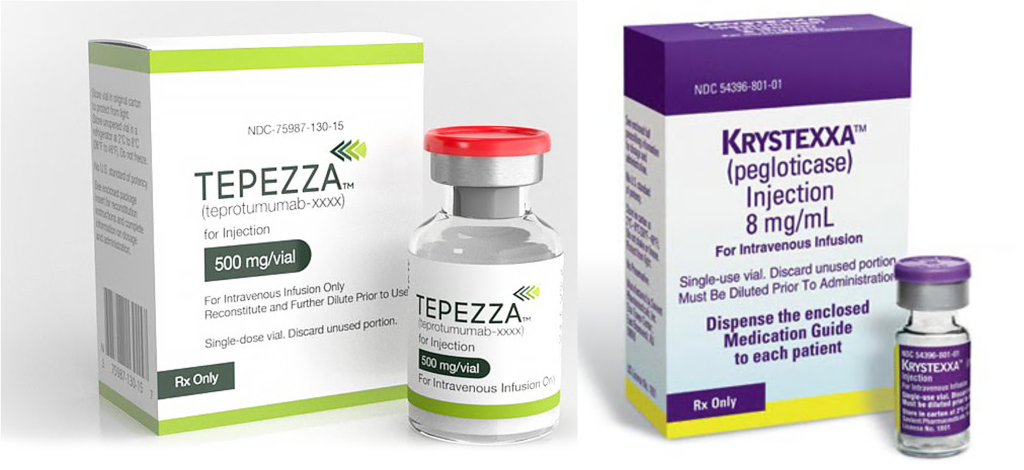Settlement said to resolve anticompetitive concerns over critical drugs.
 The Federal Trade Commission and attorneys general from six states – California, Illinois, Minnesota, New York, Washington, and Wisconsin – have reached an agreement to end their challenge to Amgen Inc.’s nearly $29 billion acquisition of Horizon Therapeutics plc. The government enforcers challenged the deal on the grounds that it would give Amgen considerable leverage to use its hefty drug portfolio to pressure insurance companies and pharmacy benefit managers into favoring Horizon’s two “monopoly products.” The drugs are Tepezza, used to treat thyroid disease, and Krystexxa, prescribed to treat chronic refractory gout. This would disadvantage producers of rival medications, the government attorneys argued.
The Federal Trade Commission and attorneys general from six states – California, Illinois, Minnesota, New York, Washington, and Wisconsin – have reached an agreement to end their challenge to Amgen Inc.’s nearly $29 billion acquisition of Horizon Therapeutics plc. The government enforcers challenged the deal on the grounds that it would give Amgen considerable leverage to use its hefty drug portfolio to pressure insurance companies and pharmacy benefit managers into favoring Horizon’s two “monopoly products.” The drugs are Tepezza, used to treat thyroid disease, and Krystexxa, prescribed to treat chronic refractory gout. This would disadvantage producers of rival medications, the government attorneys argued.
Under the terms of the proposed consent order, Amgen may not:
- Bundle an Amgen product with either Tepezza or Krystexxa.
- Condition any product rebate or contract terms related to an Amgen product on the sale or positioning either drug.
- Use any product rebate or contract term to exclude or disadvantage any product that would compete with Tepezza or Krystexxa.
- Enter into any agreement or understanding to acquire any products or interest in any business engaged in the manufacturing or sale of any products, biosimilars, or therapeutic equivalents that treat either of the two diseases without FTC approval.
Amgen must seek FTC approval before acquiring any pre-commercial products that have completed FDA clinical trials to treat either thyroid eye disease or chronic refractory gout. Amgen is required seek FTC prior approval and notify the states of any such requests through 2032. All other conditions of the consent order will be effective for 15 years.
![]()
